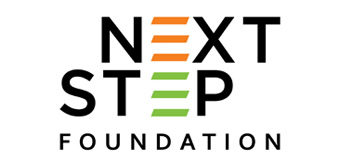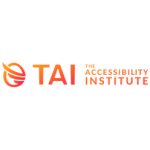“There is inherent power and control in datasets.”
Whether AI is or will be “ethical” or “responsible” is the subject of much conjecture and debate, but most of that discussion has centred around the Global North. Far less attention is paid to how AI will affect the economies (and cultures) of countries in Africa. A recently edited volume titled Responsible AI in Africa: Challenges and Opportunities sheds some much-needed light on this question.
The editors frame the issue as follows:
“Embedding cultural values and beliefs into the development and implementation of AI policies and strategies is an imperative for both AI developers and policymakers. People’s contextual understanding of reality must be represented in the design and implementation of the technology to improve acceptability. AI development and use in Africa needs to be sensitive to African cultural values, beliefs and ethical principles currently lacking in the global discussion on AI ethics and guidelines.”
A recurring theme throughout the chapters in this volume is the lack of / and need for relevant data if AI is going to be a net positive in Africa. All the way back in 2017 (which honestly feels like 100 years ago), the Economist described data as the key resource of the new economy: “data, the oil of the digital era.” This is why the editors include the lack of data among the substantial challenges that may prevent or impair the ethical and responsible development of AI in Africa:
“Substantial socio-cultural and organisational challenges undermine the adoption and implementation of AI across the continent. This includes lack of digital infrastructure, education, inadequate data, public policies and funding.” (emphasis added).
Other chapters in the volume echo this same point about the need for relevant data on which to train AI models if AI in Africa is going to be “ethical” and/or “responsible”:
- “The challenges facing Africa are numerous and diverse. At the forefront are related challenges such as difficult access to large amounts of data, quality of data, data storage, and data regulatory policy.” (emphasis mine)
- “Effective AI adoption and implementation of artificial intelligence are dependent on a variety of factors, such as having a local workforce with the required training to develop these solutions, sufficient infrastructural capacity to handle the computationally-heavy training of algorithms, representative datasets, governmental support and regulation to govern the appropriate fair use of these technologies, independent and civil institutions and policymakers that safeguard from harmful applications and rein-force responsibility and accountability.” (emphasis mine)
- “Another issue plaguing the effective adoption of artificial intelligence in Africa is the lack of data accessible to African researchers and the relevance of this data to African problems in domains such as agriculture, health care and voice/text recognition. Machine learning relies on vast amounts of data to train algorithms. If this data is sparse and unrepresentative, the resulting algorithms will be less effective and could cause harm to the vulnerable populations.” (emphasis mine)
- “To enable researchers, developers, and users to adopt AI solutions, a deeper, larger, and more accessible data pool is needed. In developing markets, particularly in unstable or conflict-affected areas, high-quality data is not always available or accessible.” (emphasis mine)
- “It has been claimed that there is a data scarcity in Africa and that the majority of acquired data does not correctly reflect the African experience, implying that many algorithms may not be appropriately adapted to the features of local populations.” (emphasis mine)
Without adequate and available data that is relevant to the local context, the AI revolution may end up perpetuating the current power asymmetries between the Global North and Global South and exacerbate the economic divide.
“Some have also pointed out that AI raises the risk of neo-colonialism with regard to data and the algorithms that shape AI. AI is as good as the datasets and the algorithm that shaped it. That means that there is inherent power and control in datasets. Allowing the Global North to own and control the datasets that shape AI systems developed for Africa amounts to what many have described as ‘data colonialism.’” (emphasis mine).
It must be noted here that much of the data annotation work that enables training AI models that are “built” in the Global North is actually done in Africa. The irony should not be missed; e.g., much of the data on which OpenAI’s ChatGTP was trained was enriched and annotated by Africans working in East Africa. It really would be like colonial times if Africa was where the “raw materials” (i.e., data) of AI were “extracted” (i.e., annotated), but the final products were produced in the US (and, to a lesser extent Europe). The authors of this volume are clearing a path that ensures this is not the future of AI in Africa.
Works Cited:
1. https://en.wikipedia.org/wiki/Global_North_and_Global_South
2. Citing Kiemde, S. M. A., & Kora, A. D. (2020). The challenges facing the development of AI in Africa. In 2020 IEEE International Conference on Advent Trends in Multidisciplinary Research and Innovation (ICATMRI), pp. 1–6.
About the Author
Dr. Christopher Harrison, our Executive Chairman, is a renowned copyright, technology, and antitrust expert. He has leveraged his expertise to drive social impact through the Next Step Foundation (www.nextstepfdn.org).



















